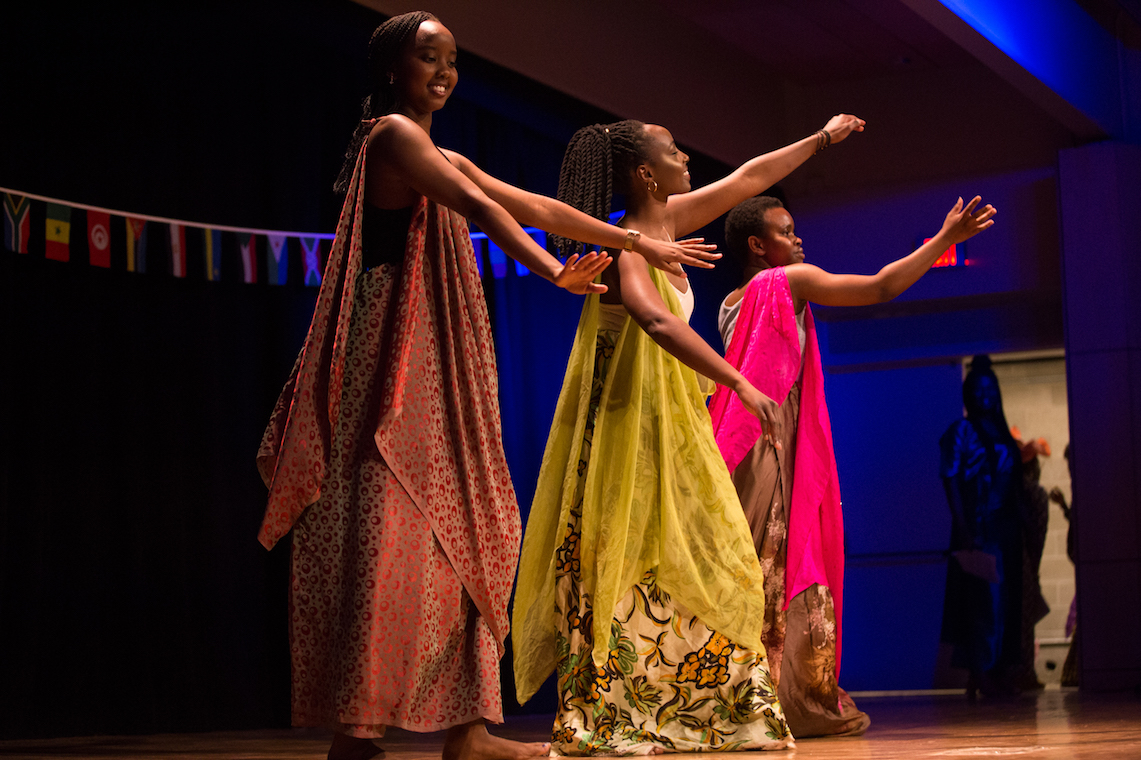Africa Academic Hub shines spotlight on studies of Africa
January 31, 2020
“I really enjoy conversations,” explained Ruby Ahaiwe ’21 as she described her favorite part of working with the Africa Academic Hub, which has emerged as a steadily growing presence on campus since it was first proposed last spring. “[The Hub] is an open space for people to have very honest conversations, and I think it’s different to see it happen beyond the classroom where people are not scrambling to get good grades,” Ahaiwe said.
Ahaiwe is the student assistant for the Africa Academic Hub, serving as a liaison between faculty, professors and students, including the student-run Africa Alliance. Since last semester, the Hub has started its work of bringing together scholars and students of Africa across disciplines.
“I think the really big thing that we want to do for this year is to really establish some sense of community,” said Associate Professor of Government Ericka Albaugh. “I want to make the study of Africa, and interest in Africa, all the people and classes that are dealing with Africa … visible and communicate that to various people so that people understand what’s happening on campus.”
 Ann Basu
Ann BasuThe Hub was first thought up last spring as the College looked to find more ways to promote interactions between disciplines. The proposal included four components: curricular coordination and collaborative discussions between courses, Africa Hub meetings and programming, public engagement with the broader community and successful African professionals in Maine and collaborative research between faculty, students and Maine community partners.
“The dean’s office encouraged calls for what was called Integrated Learning initiatives where there were spaces on campus where curriculum overlapped,” explained Professor of History David Gordon. “We could build curriculum together and contribute to a new type of learning experience for students, and this struck me as an ideal opportunity to get together folks who were especially interested in or taught about Africa.”
Gordon, along with Assistant Professor of Music Marceline Saibou and Albaugh, proposed the program to the Dean of Academic Affairs Elizabeth McCormack, detailing a four-year initiative aimed at promoting integrated learning around the subject of Africa.
The initiative also aims to involve professors and faculty members whose work is connected to Africa, including Professor of Romance Languages and Literatures Hanétha Vété-Congolo, Assistant Professor of Africana Studies Ayodeji Ogunnaike, CFD Postdoctoral Fellow in Africana Studies Tara Mock, Visiting Assistant Professor of Romance Languages and Literatures Gérard Keubeung, Visiting Assistant Professor of Anthropology Damien Droney and Postdoctoral Curatorial Fellow in the Bowdoin Museum of Art Allison Martino.
“This is a privilege, really, to be able to discuss issues around the main topic of Africa with other colleagues here which is just something we’ve not done too much in the past,” Vété-Congolo said. “To think that there would be multiple specialists of a space like Africa at a … small liberal arts college in a place like this one … would have been probably unthinkable decades ago. Yet, we’re here, we’re seeking to collaborate and to enrich our students through our collaboration.”
Albaugh explained that this collaborative conversation across classes and disciplines is important in providing students with a comprehensive education on the subject of Africa.
“We want them to be grounded in particular disciplines, but also exposed to kind of ways of seeing Africa from lots of different perspectives,” Albaugh said. “That just gives a much richer, deeper, broader view of what is happening on this continent historically and [in] the contemporary period.”
Vété-Congolo also pointed to the way this type of interdisciplinary collaboration gives students the chance to prepare for interactions they might encounter in the professional world.
“I believe this is one of the most critical preparations, because the world … bears exactly that face, whereby you encounter the other, you encounter difference, and you encounter perspectives about one same topic, and you ought to be able to open up to this difference … and communicate with that,” Vété-Congolo said.
Not only is the Hub relevant to her own background—Ahaiwe was born and raised in Nigeria—she also believes it offers students an important opportunity to explore topical questions about Africa.
“I think that it’s a very important initiative for Bowdoin to have, especially with the recent focus on the continent … There’s been a lot of focus, politically, a lot of agitations and a lot of connections between Africa and the world at large—with the U.S., with China, with the U.K., so I think it … definitely came at the right time,” Ahaiwe said. “And with Bowdoin opening its doors to more students of African descent, to more students who actually live in Africa, and [with] Maine accepting a lot of African refugees and immigrants, I think that this couldn’t have come at a better time.”
The Hub will host its first event of the semester, a conversation called “Belonging at Bowdoin,” on February 6.

Comments
Before submitting a comment, please review our comment policy. Some key points from the policy: